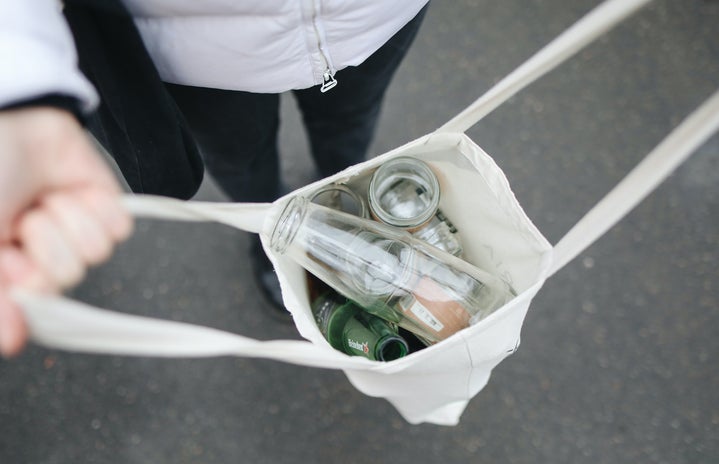For Earth Week this year, our Her Campus at Oglethorpe team has decided to theme our articles around sustainability and the environment.
In aligning with this theme, I’d like to discuss greenwashing, which is defined as, “the process of conveying a false impression or providing misleading information about how a company’s products are more environmentally sound.”
But what does that mean, exactly? I am not going to preach that I’m a perfect person who lives a sustainable lifestyle––in fact, probably the opposite. However, in trying to make more ethical changes to my life, here is what I (a layperson) understands about greenwashing.
Since sustainability has become an increasingly popular trend, companies of all kinds are capitalizing on such shifts. Marketing materials, commercials, and packaging are transitioning to the popular green, clean, and nature appeals, which include the use of buzzwords to make consumers think that what they are buying is ‘all natural’. Examples of such include ‘simple,’ and ‘plant-based.’ The assumption is that these products are good for you, even though ‘natural’ products that come from the earth are often still harmful. Even companies that are obviously large corporations or fast fashion industries that contribute the most to environmental waste are guilty of these marketing gimmicks.While a shift towards environmental consciousness is a benefit, it can also be quite detrimental.
Oftentimes, these companies will jack up the price of such sustainable items even if they are not of the advertised quality, and many companies also are not regulated in this way. Consumers are spending more money out of pocket for products that might actually be worse for the environment because of their materials. For example, Boxed Water––a viral and aesthetically pleasing product––contains boxed packaging that is MIXED with plastic and cardboard that cannot be recycled. Therefore, it is actually more sustainable to choose a plastic water bottle that can be recycled. In addition, some corporations and businesses will skimp out on plastic packaging out of ‘sustainability’ reasons, even though it’s really to save them money and can risk damaging the products.
This kind of marketing also places the responsibility of sustainable choices on the consumer. While it’s commendable that a large amount of people champion their simple lifestyle changes, this does not balance out the waste production from large corporations and fast fashion companies continuing to enter directly into landfills in developing countries. These corporations additionally have government interests and lobbyists on hand with a primary goal to make consumers spend more money.
Often, actual ethically sourced items will cost more, however I would recommend buying from a small business who can give you specific details about their practices over a corporate company who is vague about their practices and doesn’t answer criticisms on social media (but finds time to promote those who praise them). I also recognize that buying sustainably is a privilege in itself, and I hope to cover that topic in another article.
For now, be mindful of what products and companies might be greenwashing in your everyday purchasing.



